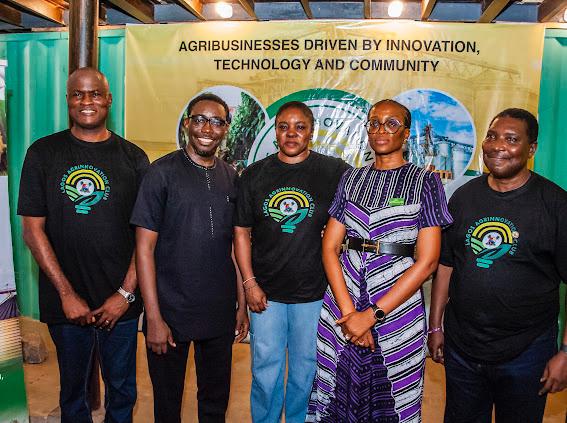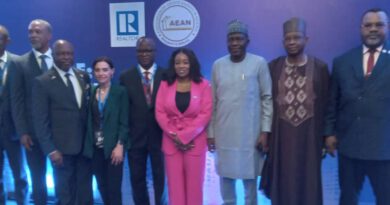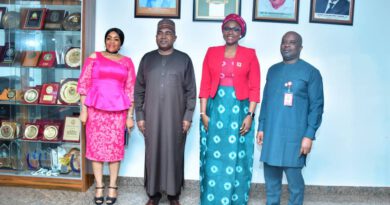Lagos Plans Agriculture, Food Systems Roadmap 2.0 to Support Ecosystem
The Lagos State Government is planning the Lagos Agriculture & Food Systems’ Roadmap 2.0, a feedback mechanism focusing on food security, progress reports on its goals and KPIs, and a platform to support the ecosystem.
This initiative aims to encourage new entrants into the sector, boosting food production in the state.
The State Commissioner for Agriculture, Ms. Abisola Olusanya, announced this during the Agrinnovation Club Hangout 3.0 held at the MAD House, University of Lagos, Akoka, Lagos.
She explained that the summit will provide a platform for stakeholders in the Agrinnovation Club to speak directly to state and national leadership about the challenges they face, seeking swift responses.
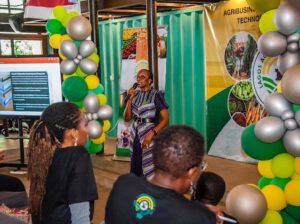
According to her, the ultimate goal of the summit is to ensure food security, which will, in the long run, lower food prices.
Ms. Abisola Olusanya stated that the Agrinnovation Club is for like-minded individuals in the agriculture ecosystem, engaging in logistics, fintech, packaging, and branding to showcase success to the young, innovative people of the state.
The commissioner noted that the forum’s essence is to create an ecosystem for the growth of the Agrinnovation Club and to foster collaboration processes, including opportunities for international exposure where necessary.
She expressed hope that more young, trustworthy, and intelligent individuals with an interest in agriculture will join the Agrinnovation Club to drive the vision forward.
Ms. Abisola Olusanya assured that the administration of Lagos State Governor, Mr. Babajide Sanwo-Olu, is ready to listen to them and provide solutions to address their challenges.
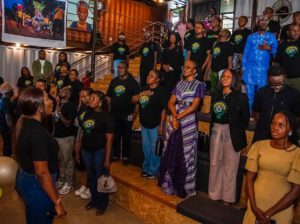
The Commissioner also disclosed that the implementation of Ounje Eko was very challenging but remarkably impactful on the lives of residents amidst rising food prices.
On his part, the Special Adviser to the Governor on Agriculture, Dr. Oluwarotimi Fashola, charged members of the Club to think outside the box, as there are untapped opportunities within the State’s Food System.
He implored them to be sensitive to the environment and cautious in collaborating with other businesses.
Dr. Fashola noted that the state government is prepared to work with them to move the Club to the next level.
Commenting on the venue of the event, the Special Adviser said that it was inspiring to use containers to create the space, noting that the Ministry is doing something similar with the recently inaugurated Last Mile Meat Shops.
One of the facilitators at the Agrinnovation Club 3.0, Mr. Olagoke Balogun, Chief Executive Officer of So Fresh, spoke on Business Models and Cost Structure as they pertain to Agricultural Business. He explained that it goes beyond farming, encompassing innovation, technology, and the entire value chain from production to final consumers.
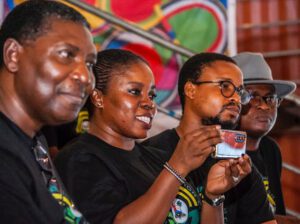
He emphasized the need for participants to be innovative in delivering value to their target markets while encouraging farmers to increase production to leverage economies of scale with their limited resources.
Olagoke Balogun cited some business models in agriculture, including Direct Primary and Agric Tourism. He recalled growing up in Kwara State and experiencing community farming firsthand before moving to Lagos to start So Fresh.
He stressed the importance of young business owners consistently collecting data on every aspect of their operations to generate patterns in customer preferences, such as what they order the most and when such orders are made.
Balogun further urged them to think about how best to get their products to as many people as possible and to study global trends in customer preferences, product design, and areas for service improvement. “The more you understand your customers, the better you can serve them,” he asserted.
He concluded by emphasizing the need for businesses to establish a good cost structure, cash flow strategies, and monthly evaluations of their operational profitability or loss, as business failure is inevitable without these measures.
Another facilitator, Mrs. Ifeoluwa Ariyo, the Chief Executive Officer of ForthWorth Farms, led a session on insights into collaboration for growth. She said that collaboration is key to learning new things and promoting business growth, adding that it can also help grow the customer base and effectively reduce costs. “Every day, there is something new to catch up with, and it can be difficult to keep up with the competition. Collaboration can be internal or external,” she added.
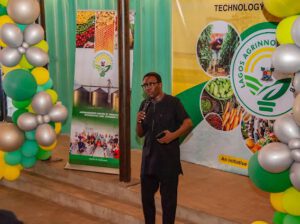
According to her, Memoranda of Understanding or collaboration agreements must be clear about what to do and when to do it in starting or ending partnerships, and that business and contractual agreements should be devoid of family ties.
Yinka Omogboye of Farm Junction, while sharing the Ounje Eko experience, said that the project aligned with his company’s vision.
He explained that they established Farm Junction in 2017 with the purpose of getting food and other consumables to consumers’ doorsteps. Speaking further, Omogboye lamented that they regularly incurred unnecessary high costs on tomatoes from Kano to Lagos due to the activities of middlemen.
The Chief Operating Officer of Admiralty Farmers Market, Oyin Asaaju, speaking on business and product support, noted that the farm prioritizes quality products and customer satisfaction.
In his closing remarks, the Permanent Secretary in the Ministry, Emmanuel Fatai Audu, described the platform as excellent and applauded the two facilitators for their thought-provoking submissions.
He reiterated the need for Agrinnovation Club members to be patient in growing their businesses and expressed hope that agriculture would soon become the mainstay of the economy in Lagos State.

